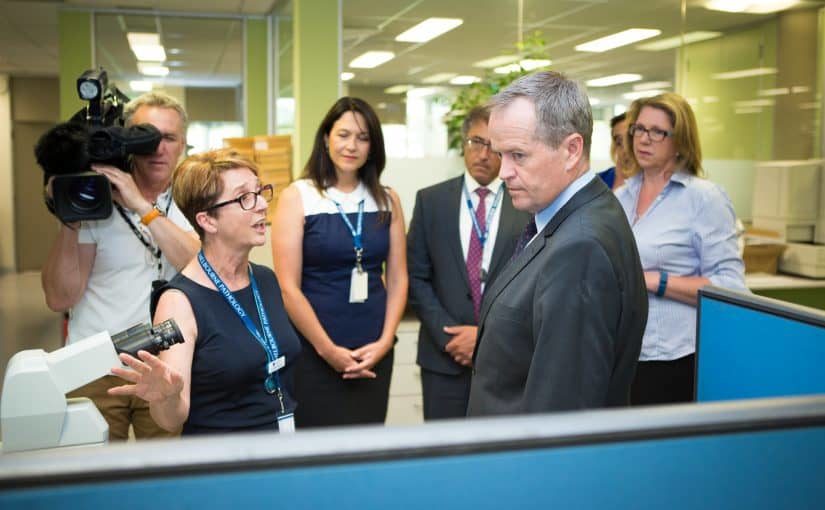Since the Know Pathology Know Healthcare initiative began, we have been inviting parliamentarians to see inside the engine room of healthcare and to learn how pathology helps the Australians they represent.
As pathology remains largely hidden, it is important that decision makers understand its integral role in order to make informed policy choices.
The 29 politicians who have visited pathology laboratories around the country include the Shadow Minister for Health, the Leader of the Greens, the Minister for Health, Leader of the Opposition and the Prime Minister.
So far in 2016, we’ve already completed 8 tours in locations as widespread as northwest Tasmania, Darwin and north Queensland.
Parliamentarians who have attended lab tours this year include Senators Jacqui Lambie, Claire Moore, Helen Polley, Jan McLucas and Labor leader Bill Shorten.
All of them have shown diverse interests; while touring a pathology lab in Burnie, Tasmania, Senator Jacqui Lambie was impressed to discover that the biochemistry analyser she was shown could process around 2,200 tests an hour. She also learned about transfusion and blood banking.
Queensland Senator Claire Moore was particularly interested in how pathology helps to monitor the health of older Australians during her visit to a Brisbane lab.
On a tour of a pathology lab in Mackay, Senator Jan McLucas was curious about how pathology overcomes the challenge of distance in servicing large regional areas.
She was interested to discover how fast turnaround times are maintained for more remote areas, by central labs working long hours to process samples overnight and provide results quickly to clinicians.
Senator Helen Polley was shown around a Launceston pathology laboratory and noted how crucial attracting and retaining qualified pathology professionals is in maintaining high standards of healthcare for Tasmanians.
Hon Bill Shorten MP toured labs in Melbourne, Canberra, Launceston and Darwin. He remarked on the importance of pathology in detecting leukaemia and other blood cancers, which may have ambiguous symptoms and require pathology tests to find the cause.
Throughout 2016, we will continue to invite politicians along for a look behind the laboratory doors and learn how pathology underpins diagnosis, effective treatment and preventative healthcare.

